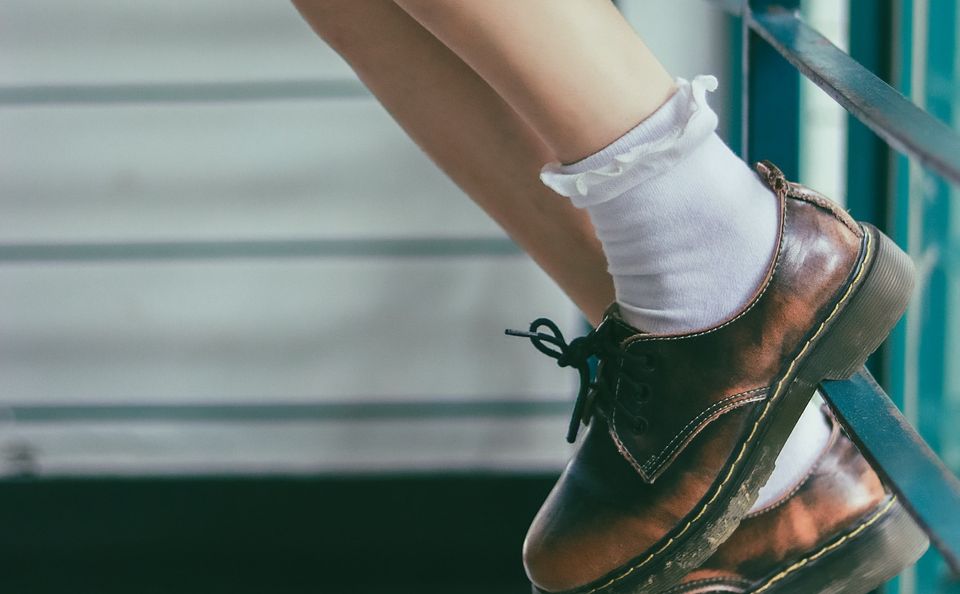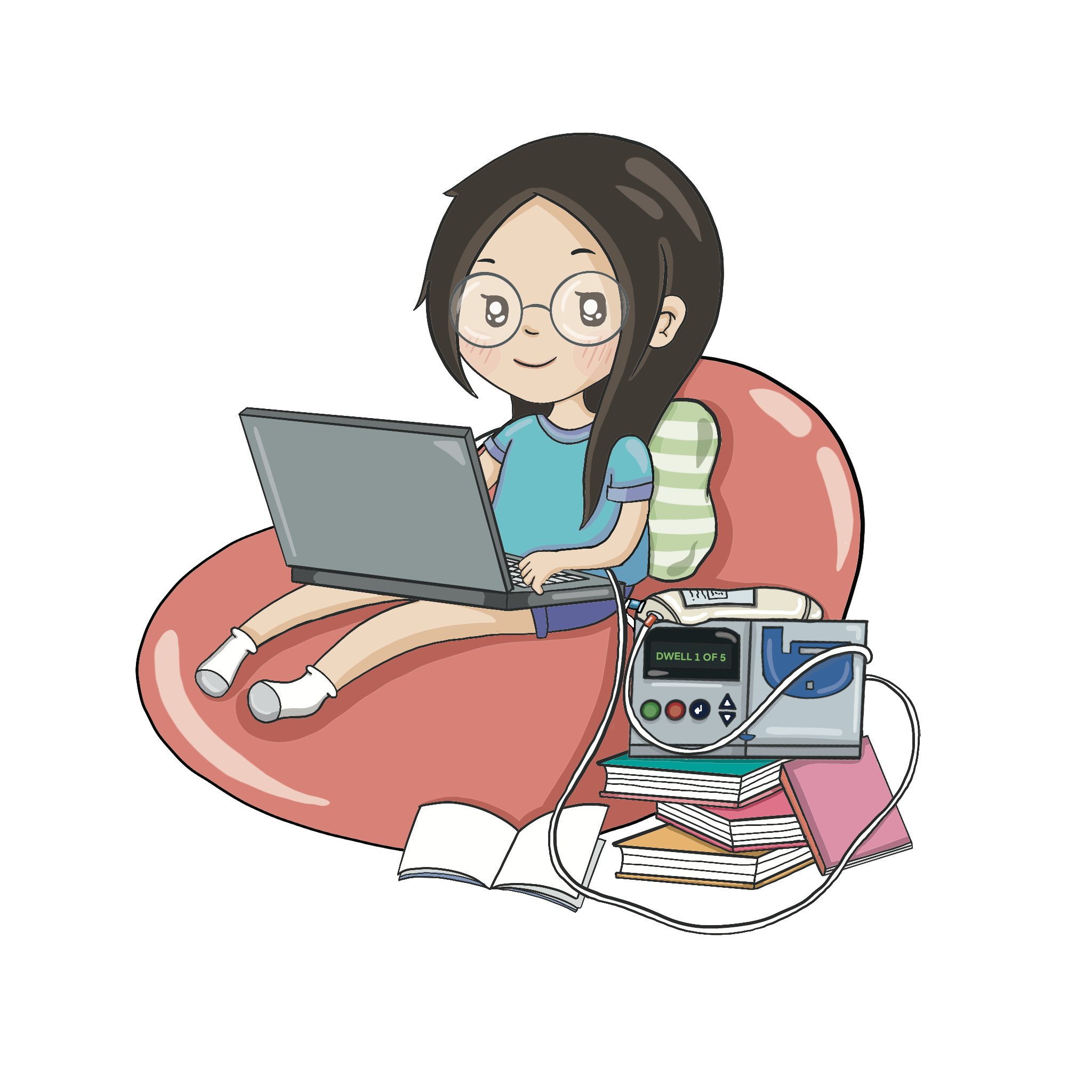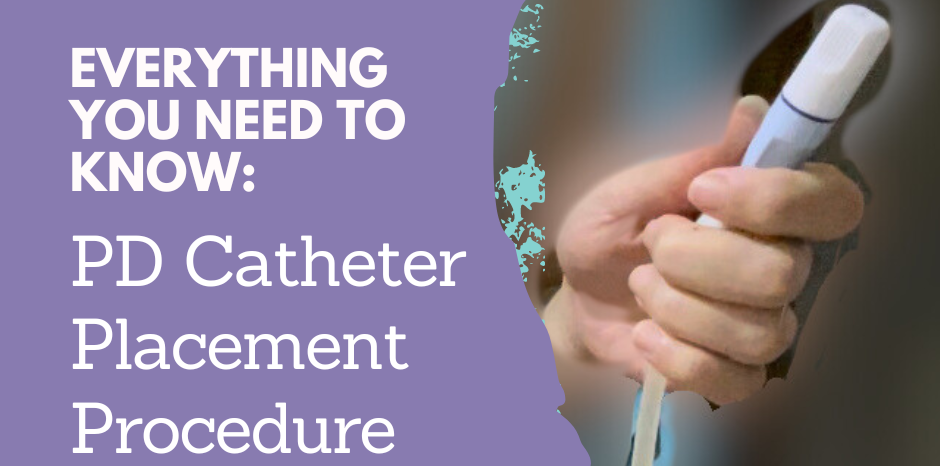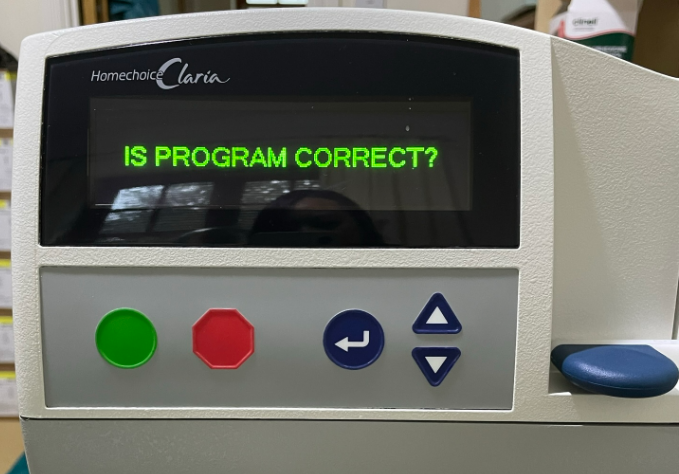How To Tell if I am Fluid Overloaded as a PD Patient?

Hello! 😀
Welcome to my personal guide, I've made on how I monitor my fluid retention whilst on peritoneal dialysis. This summer, I've really struggled with my fluid consumption as well as perhaps the shifting effectiveness of my bowels and dialysis. Consequently, I have compiled all my observations in this blog post on How to Tell If I am Overloaded as a PD Patient...because apparently I cannot 😂.
There are 3 ways for a PD Patient to tell if they are fluid overloaded from home:
1. Looking in the Mirror
This is looking at your overall features and silhouette. Do you see an increased plumpness? Remember fluid retention will look like you have seemingly gained a noticeable amount of weight in a matter of days! Albeit I doubt anyone is gaining weight on the renal diet!
For me it looked like a roundness in the shoulders, face and upper forearms. I have gathered that young people tend to hide their excess fluid more sneakily around the body and is often misidentified as our youthful plumpness rather than swelling. Other typical indicators are the classic chunky ankles. Cue nephrologist ankle prodding!
For the millennials out there if you're skinny jeans are unusually leaving heavier set indentation marks around the ankles and legs, perhaps it's time to double check scales!
2. Daily Weigh-in Morning and Night
The most accurate method is to check your weight before and after dialysis everyday and note any significant fluctuations of +/- 2Kgs. Remembering that any extraneal (day fills) you may have in your stomach during the day will contribute to your weight (1000ml = 1kg). So a fluctuation in excess of that is likely fluid retention!
3. Persistent Negative Ultrafiltration UF Figures
Going back to the source of the problem, fluid retention is from not enough fluid being taken off the body from dialysis and urination and if you no longer urinate then you are 100% relying on the machine to do its job. Persistent negative UF indicates the body is retaining the some of the fluid that is being filled into you each cycle and is not coming completely off during the drain cycles. Over successive nights, you can imagine there will be a build of fluid on the body, which will present as swelling and sudden weight gain!
Other symptoms of fluid retention...
While the above are the box standard methods of checking for fluid retention. Here are some other indicators that I have picked up along the way and were actually the ones I acted on because I was a bit dim about the above. Talk about complacency after 3 years on smooth sailing PD!
Unexplained high blood pressure
Increased fluid retention on your body can increase your blood pressure despite not changing anything else in your routine: your medication, your diet and exercise plan.
Painful Joints
Increased fluid retention and swelling around the joints can appear as fat fingers and ankles. I found in the mornings, my hands would feel stiff and painful to clench into a fist. It can be easy to ignore as after a few minutes as you sit up and gravity does its thing, the fluid redistributes and the pain dissipates.
Moving Fluid and Gravity
As mentioned in the above, its important to remember that the fluid moves around your body and will follow the will of gravity. So try to be aware of fluctuations in your silhouette or how you're feeling throughout the day. For example, I found when I walked long distances with my arms at my side, my fingers and ankles would swell but when I wake up in the morning my face and shoulders were swollen. Just because the swelling goes down over the day does not mean the fluid has disappeared!! It has just relocated elsewhere in the body.
Unless you are actively urinating. Remember the only way the fluid is going to get off you
Acne or Poorer Skin Health
As someone before dialysis who never really experienced severe acne or cystic breakouts. I, unfortunately, did develop particularly severe acne after. I have no evidence to prove this but it was only after increasing my dialysis regime did I see a noticeable decrease in breakouts and improvement in my acne. This suggests to me that when our machines are not fully removing excess water and perhaps some of the waste substances from our body it shows in our skin health. Since switching up my dialysis to deal with my fluid retention I have had no further cystic breakouts! 🎉
Shortness of Breath
I sincerley hope that you will have identified with any of the above indicators before reaching this point but yet difficulty breathing or shortness of breath is a worrying and key indicator of fluid overload. A big reason why nephrologists worry about fluid overload is because it can lead to pleural effusion which is where fluid builds up in the lungs. I do not have the medical knowledge to fully understand but I am told that it can lead to severe / life threatening complications surrounding breathing and can be quite sudden if pushed past an extreme. It is where the excessive fluid collects in the lungs and can lead to breathing complications and the treatment to remove the fluid involves quite an invasive procedure with needles.
Conclusion
In conclusion, the 3 methods of monitoring your fluid retention are: (1) Looking in the mirror for swelling, (2) Daily Weigh-ins and (3) charting your negative UF figures over time. Home dialysis can offer greater freedom and therapy in the comfort of your home but there is a lot of responsibility in ensuring you are monitoring your health and proactively dealing with any abnormal changes in your day to day life.
However, I can hugely sympathise for all those who like me can become complacent or just plain getting on their lives and suddenly find themselves to be fluid overloaded without even noticing! It happens. That's why I have also included all the other small indicators too. I'm not always thinking about my water intake and definitely not always wanting to look in a mirror or be on the scales all the time. So it's sometimes good to have some other little warning signs that may prompt you to go back to square 1.
I really hope this guide helped you work out whether you are retaining too much fluid on the body. You can check out my blog series with fighting fluid retention. Otherwise good luck on your kidney journey!
Other guides you might like:
What is Ultrafiltration (UF) in Peritoneal Dialysis
A Little About Me:
My name is Lai and I am 26 years old living on Home Peritoneal Dialysis in the UK. I started home peritoneal dialysis in the height of the pandemic in the winter of 2020 and have been on daily 9 hour overnight dialysis ever since, whilst waiting on the national transplant list. I live with my two parents at home but I am the one with the sole responsibility of setting up and dismantling my machine and the general monitoring of my day to day health.
Follow me on:
IG: @My_Kidney_and_Lai
YT: My Kidney and Lai
Working on how to add comments to my blog posts, feel free to reach out to me on my Instagram DMs in the meantime!




